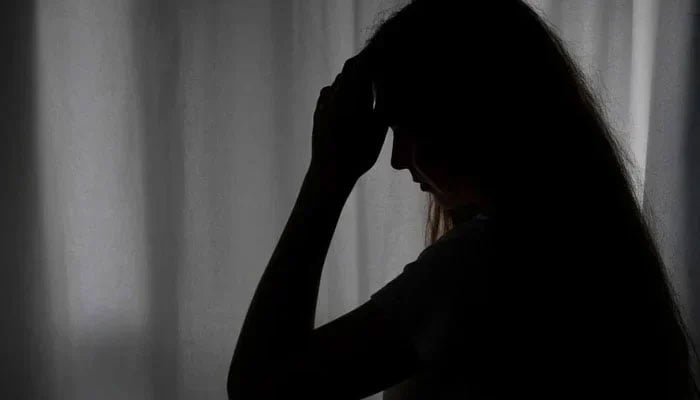Who to talk to and when?: A quick guide to mental health professionals
Dr Ifrah Hambal is a graduate of Dow Medical College and completed her internship at the Aga Khan University Hospital (AKUH), where she also pursued her residency in psychiatry.
Mental health professionals are experts who help people deal with mental health problems or mental illnesses, just like there are specialists for different physical illnesses. There are various types of mental health professionals, each offering different services:
Psychiatrist
A psychiatrist is a medical doctor who specialises in treating mental illnesses through medication. They must complete a Bachelor of Medicine and Bachelor of Surgery (MBBS) degree, followed by MCPS or FCPS in Psychiatry. To receive a proper diagnosis, an individual would need to visit a psychiatrist, who can prescribe medication or recommend psychotherapy from a clinical psychologist.
Clinical Psychologist
A clinical psychologist typically holds a Bachelor of Science (BS – a four-year program) in Psychology or a related discipline, followed by a two-year MS, MPhil, PhD, or PsyD degree in Clinical or Counseling Psychology (minimum of 18 years of education), along with a required supervised clinical internship.
They are trained in psychological testing and assessment, which is often helpful in determining the diagnosis and nature of a problem. Not all psychologists are trained to provide clinical services—some work in industry, schools, or research—but clinical psychologists are qualified to treat mental illnesses through psychotherapy (talk therapy).
They can help with a wide range of issues, such as mental illnesses, life problems, relationship issues, and self-growth. Some may receive additional training to work with couples and families. Clinical psychologists cannot prescribe medication.
Counselor
Counselors are professionals who have either a degree in counseling psychology or an advanced diploma in psychotherapy and counseling. They are not trained or qualified to diagnose or treat mental illnesses or psychiatric conditions but can assist with various life problems, self-improvement, and basic problem-solving. Counselors cannot diagnose or prescribe medications.
People have the right to ask about a mental health professional's qualifications to ensure they are receiving care from someone who is properly trained.
When should you see a mental health professional?
Everyone feels low or stressed from time to time. However, when certain behaviours or emotional experiences last for several weeks or more, it might be time to pay closer attention. You should consider seeking professional help if you consistently experience:
- Sleep problems (difficulty falling or staying asleep, waking early and being unable to sleep again, or very little to no sleep for days without feeling the need to rest)
- Appetite or weight issues (eating too much or too little, or experiencing sudden, unexplained weight loss)
- Persistent emotional distress (ongoing sadness, anxiety, fear, apprehension, anger, irritability, or hopelessness)
- Frequent thoughts about hopelessness, death, or self-harm
- Cognitive difficulties (memory problems, inability to focus or concentrate, trouble making everyday decisions)
- Unexplained physical symptoms (aches, fatigue, or low energy without a medical cause)
It is important to speak to a mental health professional if these signs:
- Become so persistent or noticeable that they negatively affect your life
- Interfere with your ability to live a normal life like most people
- Cause distress to you or those around you
- Represent a significant change from your usual self
When people don’t feel safe to speak up or seek support, they may become more isolated—which only deepens the pain they’re trying to carry alone. But here’s the truth: seeking help is a sign of strength, not weakness. Just like we reach out to a doctor for physical illness, it’s okay—and necessary—to reach out for support when our mind and emotions are struggling.
1 out of 5 Pakistani school going children are affected by emotional and behavioural problems
-
 Is Elon Musk Set To Become First Trillionaire In 2026? Market Odds Explained
Is Elon Musk Set To Become First Trillionaire In 2026? Market Odds Explained -
 Prince Harry’s Protective Stance On Meghan Markle Sparked Rift With William, Charles
Prince Harry’s Protective Stance On Meghan Markle Sparked Rift With William, Charles -
 How BTS Push Through Performances As They Gear For 2026 Comeback
How BTS Push Through Performances As They Gear For 2026 Comeback -
 AI Copyright Battle: ByteDance To Curb Seedance 2.0 Amid Disney Lawsuit Warning
AI Copyright Battle: ByteDance To Curb Seedance 2.0 Amid Disney Lawsuit Warning -
 Savannah Guthrie In Tears As She Makes Desperate Plea To Mom's Kidnappers
Savannah Guthrie In Tears As She Makes Desperate Plea To Mom's Kidnappers -
 Canada’s Defence Industrial Strategy Targets 125,000 Jobs And Export Growth
Canada’s Defence Industrial Strategy Targets 125,000 Jobs And Export Growth -
 Tre Johnson, Former NFL Guard And Teacher, Passes Away At 54
Tre Johnson, Former NFL Guard And Teacher, Passes Away At 54 -
 Jerome Tang Calls Out Team After Embarrassing Home Defeat
Jerome Tang Calls Out Team After Embarrassing Home Defeat -
 Cynthia Erivo Addresses Bizarre Rumour About Her Relationship With Ariana Grande
Cynthia Erivo Addresses Bizarre Rumour About Her Relationship With Ariana Grande -
 Prince Harry, Meghan Markle Spotted Cosying Up At NBA All-Star Game
Prince Harry, Meghan Markle Spotted Cosying Up At NBA All-Star Game -
 Lady Gaga Explains How Fibromyalgia Lets Her 'connect With People Who Have It'
Lady Gaga Explains How Fibromyalgia Lets Her 'connect With People Who Have It' -
 Metro Detroit Weather Forecast: Is The Polar Vortex Coming Back?
Metro Detroit Weather Forecast: Is The Polar Vortex Coming Back? -
 Daniel Radcliffe Reveals Surprising Way Fatherhood Changed Him
Daniel Radcliffe Reveals Surprising Way Fatherhood Changed Him -
 ‘Disgraced’ Andrew At Risk Of Breaking Point As Epstein Scandal Continues
‘Disgraced’ Andrew At Risk Of Breaking Point As Epstein Scandal Continues -
 Alan Cumming Shares Plans With 2026 Bafta Film Awards
Alan Cumming Shares Plans With 2026 Bafta Film Awards -
 OpenClaw Founder Peter Steinberger Hired By OpenAI As AI Agent Race Heats Up
OpenClaw Founder Peter Steinberger Hired By OpenAI As AI Agent Race Heats Up




